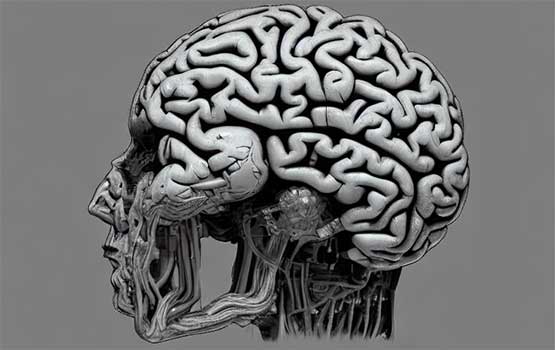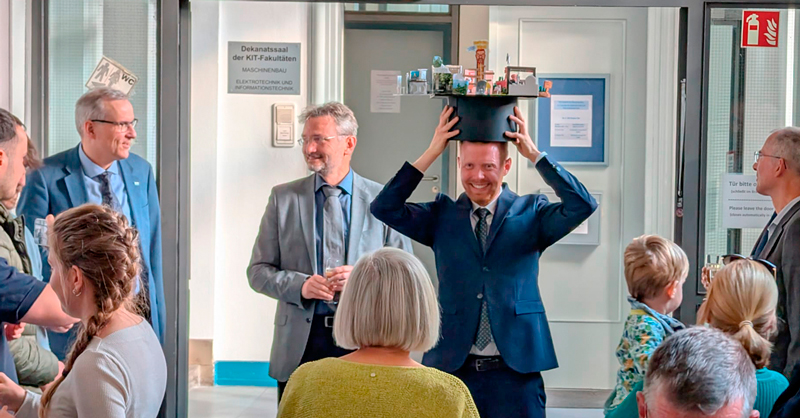_linkedin_230.jpg)
Philipp Rigoll
- 14.10.2025
- Semantically searchable data management system for the development of image-based driving systems
- Group: Prof. Sax
- philipp rigoll ∂does-not-exist.fzi de
- www.fzi.de/team/philipp-rigoll/
Corrector: Prof. Dr. Ulrich Schwanecke (Hochschule RheinMain - HSRM)
Summary of the dissertation
Highly automated driving systems hold potential for ecological, economic and safety-related improvements in mobility, but require careful development and testing - especially when incorporating image-based neural networks. However, the provision of corresponding images for testing during development is still uneconomical and difficult to integrate into the development process due to extensive automotive data sets.
This dissertation proposes a data management system for the semantic searchability of these data sets. The developed system is independent of manual annotations and fits into the development process of highly automated driving systems. The dissertation contributes to improving the mobility of the future by creating the basis for testing highly automated, image-based driving systems.
We congratulate Philipp Rigoll on this great achievement!

Data analysis and data mining
Driven by digitalization, data is now central to the most diverse areas of life and the economy. It appears in a wide variety of forms and manifestations. Data is being collected, processed and stored in more and more places. Data analysis is concerned with extracting valuable information from this data. The focus of data mining is on the use of statistical methods to find and describe patterns and hidden correlations in the data. At the FZI/ITIV, we are researching how to carry out these analyses as agnostically as possible. The primary goal is to ensure that the analyses are comprehensible and that the results are presented in an understandable way.

Augmentation with generating artificial neural networks
In addition to generalizing to unknown data, artificial neural networks are able to generate new data (the three images above were generated by text input with the stable diffusion architecture). In addition to purely artistic and creative work, this procedure also allows missing data points to be added to data sets. This data set enlargement is called augmentation. At the FZI/ITIV, we are researching the use of augmentation with generating artificial neural networks in connection with the development of automated driving functions.

Machine learning
Building on data analysis and data mining and the associated understanding of the data, machine learning goes one step further. Here, algorithms learn the laws of the data as a statistical model and can generalize to other data after a learning phase. Machine learning has proven itself particularly in the form of artificial neural networks and is used, for example, to predict time series, detect anomalies and detect objects. At the FZI/ITIV, we develop and investigate these methods in the context of automated driving, for example.
Supervised student work
- BA: "Conceptualization of a pipeline for the augmentation of images from road traffic using machine learning"
- BA: "Feature analysis of automotive images augmented with Generative Adversarial Networks to evaluate their use as sample data"
- MA: "Evaluation of the possible use of augmentation using Generative Adversarial Networks in closed-loop integration testing of highly automated driving functions"
- MA: "Object-related investigation of a latent space to gain new contexts"
- BA: "Conception and evaluation of a query method for an image database with real automotive data"
- MA: "Design of an LLM-based data assistant with integrated learning support for companies"
- MA: "Evaluation of the application strategies of generative AI in requirements engineering"
- MA: "Visualization of requirements documents using large language models in requirements engineering"
Publications
Rigoll, P.
2025, October 22. Karlsruher Institut für Technologie (KIT). doi:10.5445/IR/1000185851
Reis, P.; Rigoll, P.; Sax, E.
2024. 2024 IEEE 27th International Conference on Intelligent Transportation Systems (ITSC), Edmonton, AB, Canada, 24-27 September 2024, 1962–1967, Institute of Electrical and Electronics Engineers (IEEE). doi:10.1109/ITSC58415.2024.10920178
Rigoll, P.; Adolph, L.; Ries, L.; Sax, E.
2024. 2024 IEEE 27th International Conference on Intelligent Transportation Systems (ITSC), Edmonton, AB, Canada, 24-27 September 2024, 2398–2404, Institute of Electrical and Electronics Engineers (IEEE). doi:10.1109/ITSC58415.2024.10920034
Rigoll, P.; Langner, J.; Ries, L.; Sax, E.
2024. 2024 IEEE Intelligent Vehicles Symposium (IV), Jeju Island, 2nd-5th June 2024, 1053–1059, Institute of Electrical and Electronics Engineers (IEEE). doi:10.1109/IV55156.2024.10588869
Rigoll, P.; Petersen, P.; Stage, H.; Ries, L.; Sax, E.
2023. 2023 IEEE 26th International Conference on Intelligent Transportation Systems (ITSC), 168–174, Institute of Electrical and Electronics Engineers (IEEE). doi:10.1109/ITSC57777.2023.10422271
Rigoll, P.; Petersen, P.; Ries, L.; Langner, J.; Sax, E.
2022. Fahrerassistenzsysteme und automatisiertes Fahren, 41–48, VDI Verlag. doi:10.51202/9783181023945-41
Rigoll, P.; Petersen, P.; Langner, J.; Sax, E.
2022. Advances in Systems Engineering : Proceedings of the 28th International Conference on Systems Engineering, ICSEng 2021, December 14-16, Wrocław, Poland. Ed.: L. Borzemski, 403–417, Springer International Publishing. doi:10.1007/978-3-030-92604-5_36
Rigoll, P.; Ries, L.; Sax, E.
2022. 2022 IEEE 25th International Conference on Intelligent Transportation Systems (ITSC), 3139–3145, Institute of Electrical and Electronics Engineers (IEEE). doi:10.1109/ITSC55140.2022.9921868
Petersen, P.; Stage, H.; Langner, J.; Ries, L.; Rigoll, P.; Philipp Hohl, C.; Sax, E.
2022. 2022 IEEE International Symposium on Systems Engineering (ISSE), 1–8, Institute of Electrical and Electronics Engineers (IEEE). doi:10.1109/ISSE54508.2022.10005441
Ries, L.; Rigoll, P.; Braun, T.; Schulik, T.; Daube, J.; Sax, E.
2021. 2021 IEEE International Intelligent Transportation Systems Conference (ITSC), 1251–1258, Institute of Electrical and Electronics Engineers (IEEE). doi:10.1109/ITSC48978.2021.9564636


_800.jpg)
